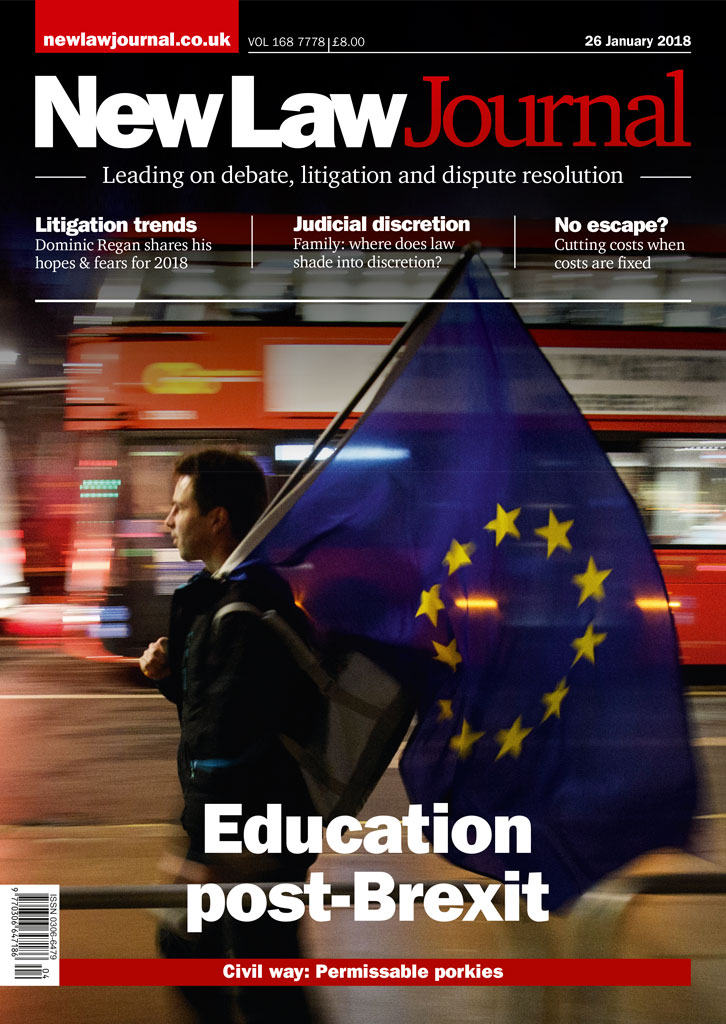
Brexit is a ‘big issue’ for higher education, solicitor Hilary Aldred has warned.
Writing in NLJ this week, Aldred, partner at Penningtons Manches, argues that the higher education sector relies on the mobility of staff and students, with an estimated 34,000 academics hailing from other EU countries. Another concern is that many EU students will be deterred by a full international student fee and, even if they continue to be charged domestic level fees, they would no longer be eligible for Student Loans Company loans.
Moreover, whether or not students will be allowed to remain in the UK to work after their course has not yet been agreed. While UK students taking part in Erasmus schemes abroad could also face higher fees post-Brexit.
Consequently, the higher education industry is lobbying for special sector terms in any post-Brexit agreement.
Aldred says: ‘Unless there is certainty soon, there is a real risk that students will start to look elsewhere.'










